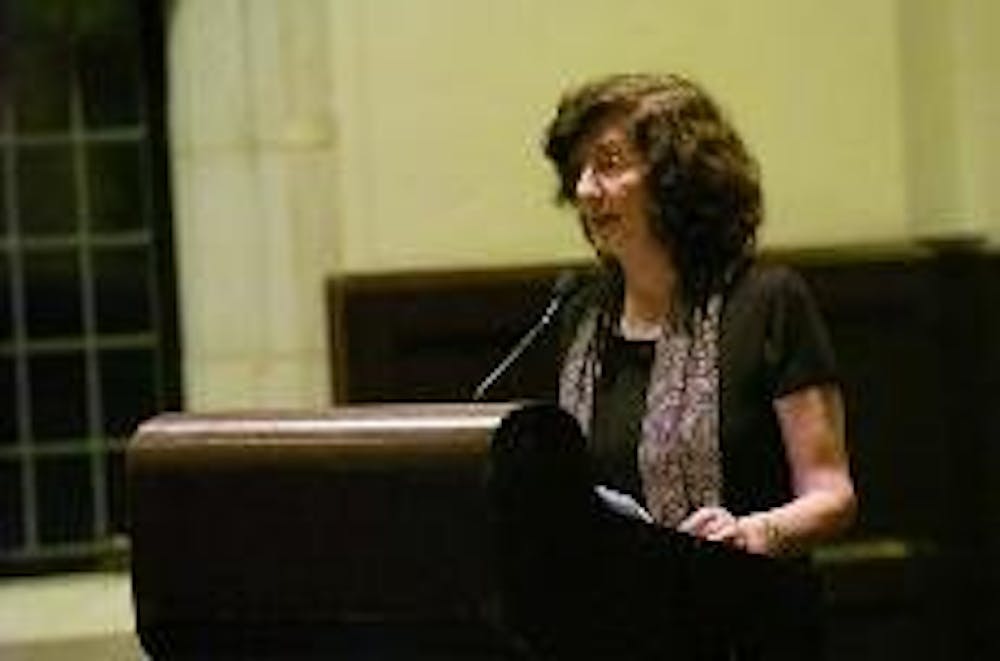Soon after Jennifer Bonovitz began working with a 10-year-old inner-city child born to a crack-addicted mother, she noticed that things kept disappearing from her office.
Realizing the boy was headed for trouble, the Philadelphia psychoanalyst confronted him.
"He explained about how he needed to be good at stealing stuff to take care of his 'boys,'" Bonovitz said. "It showed me what we're up against."
Five other panelists, along with Bonovitz, representing numerous academic and professional organizations, talked with over 80 community members and students in Bodek Lounge at Houston Hall last night about the causes of and possible solutions to youth violence.
Panelist and Sociology professor Elijah Anderson identified poverty as the primary cause of violence in urban communities.
"Of all the problems affecting the black community, none is more important than interpersonal violence and aggression," he said. "So much of it goes back to economic disenfranchisement. A huge number of people have lost faith in civil law, so street justice, where the rules supply rationale for violence, fills that void."
While Anderson focused on economics, Temple psychiatry professor Paul Fink argued that poor parenting lays the foundation for future aggression.
"The most important prevention for youth violence is parenting education," he said. "Children need love and attention, and we are dealing with a society where households are in chaos."
Jobs and education can provide at-risk youths with an alternative to violence, said Richard Gelles, dean of the School of Social Policy and Practice.
"This is a public health problem," he said. "The reality is that child-protective services aren't providing a safety net for these children."
At the end of the presentation, Fink encouraged Penn students to help quell youth violence by mentoring at-risk children.
"We need 10,000 people to spend time and show these kids some love," he said.
Social Work graduate student Alicia Marini said the presentation helped her better understand the clients she works with.
"I've worked with children and their families in West Philadelphia, and this helped me understand the structural and systemic situation my clients are in," she said.



